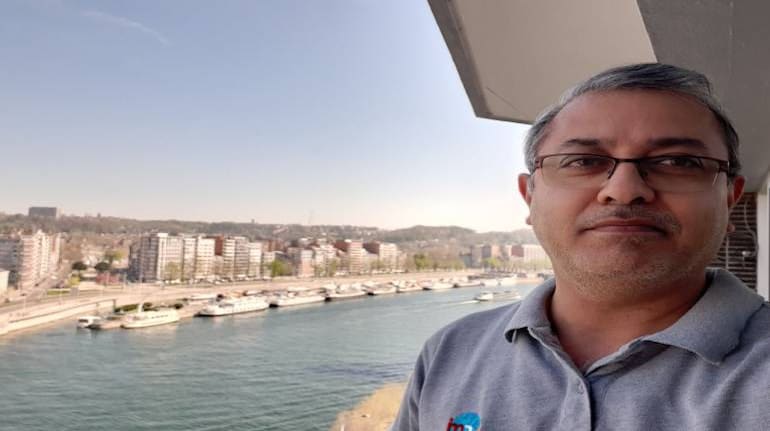
Akash Ohri moved to the Seraing municipality in Liege province of Belgium as the Financial Controller for the industry sector at industrial machinery manufacturer John Cockerill Group in July 2019. The group, having a turnover of 1.3 billion euros, has five verticals and the industry sector is one of them.
For Ohri, this move from India to Belgium was a transfer within the company because of a shuffle of responsibilities. Ohri is a board member of the Indian subsidiary CMI Industry Automation and the Chinese joint venture Cockerill Engineering Beijing (CEB).
A professional with close to 20 years of experience, Ohri has been in Seraing alone these last few months. His family was supposed to join him in March in this scenic town close to the Belgian border but the travel bans due to COVID-19 threw a spanner in the works.
Associated with the industry vertical which largely deals with speciality metals and treatment, Ohri has seen overall demand collapse.
“All capex has been deferred to 2021. Clients have allowed us only 10-15% this year, mainly for design,” he says.
This massive hit on revenues puts a question mark on the organisational structure, Ohri mulls. He is unsure how the fixed costs can be sustained as the sales teams are stuck.
“Though we are using Teams, Zoom and other tools, our sales need face-to-face meetings. We do not see the situation improving till mid-to end-June,” he says.
It will be a slow road to recovery with different parts of the world in lockdown and the logistics of opening up has to be dealt with. He cites the example of a facility at Hedavali, Maharhastra.
“It is an open shed, yet it will require at least two days to open and restart it,” he says.
Though China has opened up ahead of India, business is taking time.
“Even if we send someone to China, the person has to stay in quarantine for 14 days. We cannot sustain that kind of cost,” he says.
China has a quarantine policy when people move from one type of risk zone to another. The company has a joint venture in Wuhan called Cockerill Engineering Wuhan (CEW).
As regards the rash of anti-China sentiment across the world, Ohri believes it is unlikely to persist as China is too closely interconnected with the world economy.
“Close to half the tourism revenue in Europe comes from China,” he says.
However, the diversification of risk too is going to be a reality of the new world that will emerge after the pandemic dies. Simultaneously, he believes that India has a chance to attract fresh investments to itself provided it can find a way to cut through its famed red- tapism. He believes the Indian government is trying to do its best under the circumstances.
However, investors still do not have 100 percent confidence in the government because the administrative machinery below the top echelons is still what Ohri calls is “old machinery.”
“The Prime Minister can say that (welcome) but what about the bureaucrats? All countries are linked now. It is no longer a closed circle,” he says, speaking of the flow of investments in the post-COVID-19 world.
“There is no sure shot formula (out of the current mess). Nobody knows (how this will pan out),” he sayd.
Much will change in the future including human behavior, business models and consumer preferences.
“Definitely, travel will be avoided for sometime. I guess half the time, we will use tech for meetings. My guess is that at least a quarter of the workforce will be offered the option of work from home. In case of manufacturing there is no choice. We have to be on site,” he says.
But Ohri does not expect the WFH to take root beyond a certain limit in India. “
“Indians like to talk face-to-face,” he says.
He believes that the government will perhaps play a role in driving consumer behaviour towards more sustainable choices in the post-COVID-19 world. He is looking forward to the lifting of the last phase of the lockdown from June 8 in Belgium.
Belgium has reported one of the highest mortality rates for Covid-19, though its government says it is due to the rigour of counting. Belgium’s Covid-19 lockdown began on March 18 but had significant relaxations as compared to the stringent Indian lockdown. It allowed offices to work with a third of the workforce.
Ohri stays mostly indoors barring a brisk walk in the morning and catches up with a couple of friends on Sundays. In a week, on Tuesdays and Thursdays he attends office just so that he can meet a couple of people. He drives around 11-odd kilometres to his office on the appointed days “so as to meet a couple of people” with the social distancing norms.
On the other days he works from home. Wednesdays and Fridays are his days of “economic unemployment” — as ‘solidarity’ — a concept where the company does not pay him for those two days, but the Belgian government covers the basic expenses.
After work, he goes for an evening walk as the sun sets as late as 9.30 PM in Seraing. Food is simple as he cooks himself for his vegetarian tastes. Thereafter, it is the usual video calls to family, friends and some television. Sundays, a couple of acquaintances meet to rule out the tedium. “There is a bit of homesickness.” He is rethinking if his family should join him in Belgium now. His son was scheduled to join him, followed by his wife and daughter. Work and life will not be the same again.
“It will be a new world in 2021. And you have to welcome it. You have no choice,” he says philosophically.
source: moneycontrol


















